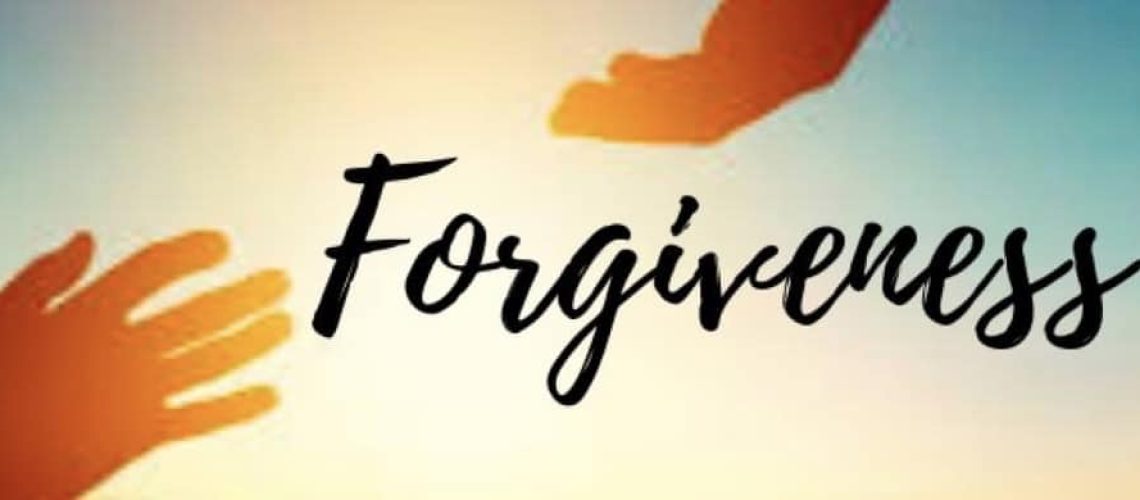To Forgive Is To Set A Prisoner Free And Discover That Prisoner Was You.
– Lewis B Smedes, Author, And Theologian –
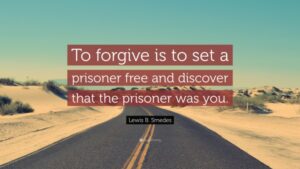 What does it mean to ‘forgive?’
What does it mean to ‘forgive?’
In the intricate tapestry of human relationships, forgiveness emerges as a transformative force that has the power to mend the most fractured bonds and heal the deepest wounds. The ability to forgive is not just a virtue; it is a profound act of self-liberation. In this blog, we will explore the profound significance of forgiveness, unraveling the reasons why embracing this virtue is essential for one’s peace of mind.
- THE WEIGHT OF RESENTMENT:

Carrying the burden of resentment is akin to dragging around a heavy anchor that hampers your journey toward inner peace. When we hold onto grudges, we subject ourselves to a constant state of emotional turmoil. Forgiveness acts as a balm, relieving the heart of the weight that resentment imposes.
- EMBRACING EMOTIONAL FREEDOM:
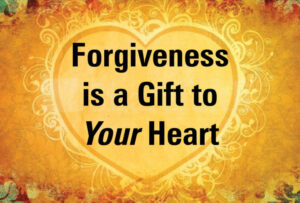 Forgiveness is the key to unlocking emotional freedom. It grants us the liberty to move beyond the shackles of anger and hurt, allowing us to reclaim control over our emotions. By releasing the grip of negative feelings, we create space for joy, love, and serenity to flourish.
Forgiveness is the key to unlocking emotional freedom. It grants us the liberty to move beyond the shackles of anger and hurt, allowing us to reclaim control over our emotions. By releasing the grip of negative feelings, we create space for joy, love, and serenity to flourish.
- BREAKING THE CYCLE OF PAIN:
Harboring resentment perpetuates a cycle of pain. When we refuse to forgive, we inadvertently pass on the negativity to ourselves and those around us. Choosing forgiveness is a conscious decision to break this cycle, fostering an environment of compassion and understanding.
- EMPOWERING SELF:
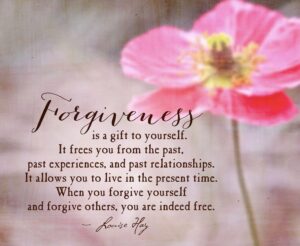
Forgiveness is not a sign of weakness but a manifestation of strength. It takes courage to let go of the past and transcend the desire for revenge. By choosing forgiveness, we empower ourselves to rise above the circumstances, demonstrating resilience and grace in the face of adversity.
- HARMONY OF MIND AND BODY:
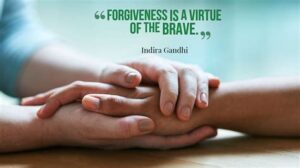
The mind and body are intricately connected, and the impact of emotions on physical well-being is well-documented. Choosing forgiveness contributes to the harmony of mind and body, reducing stress, anxiety, and other negative health effects associated with holding onto grudges.
- CULTIVATING COMPASSION:

Forgiveness is a form of compassion, both for ourselves and for others. It involves understanding that we are all fallible, and capable of making mistakes. By extending compassion to those who have wronged us, we create a ripple effect of healing that goes beyond personal boundaries.
- STRENGTHENING RELATIONSHIPS:
In interpersonal relationships, forgiveness is the glue that repairs the cracks caused by disagreements and conflicts. It fosters empathy, understanding, and a willingness to move forward. When we forgive, we create the space for deeper, more meaningful connections with others.
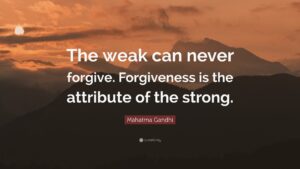 In the grand symphony of life, forgiveness emerges as a harmonious chord that resonates with the essence of our humanity. The power of forgiveness lies not only in its ability to mend broken relationships but, more importantly, in its capacity to restore inner peace. Letting go of resentment is an act of self-love and liberation, freeing ourselves from the chains that bind us to the past. As we navigate the complexities of human interactions, may we embrace the transformative power of forgiveness, unlocking a path to serenity and genuine contentment.
In the grand symphony of life, forgiveness emerges as a harmonious chord that resonates with the essence of our humanity. The power of forgiveness lies not only in its ability to mend broken relationships but, more importantly, in its capacity to restore inner peace. Letting go of resentment is an act of self-love and liberation, freeing ourselves from the chains that bind us to the past. As we navigate the complexities of human interactions, may we embrace the transformative power of forgiveness, unlocking a path to serenity and genuine contentment.

